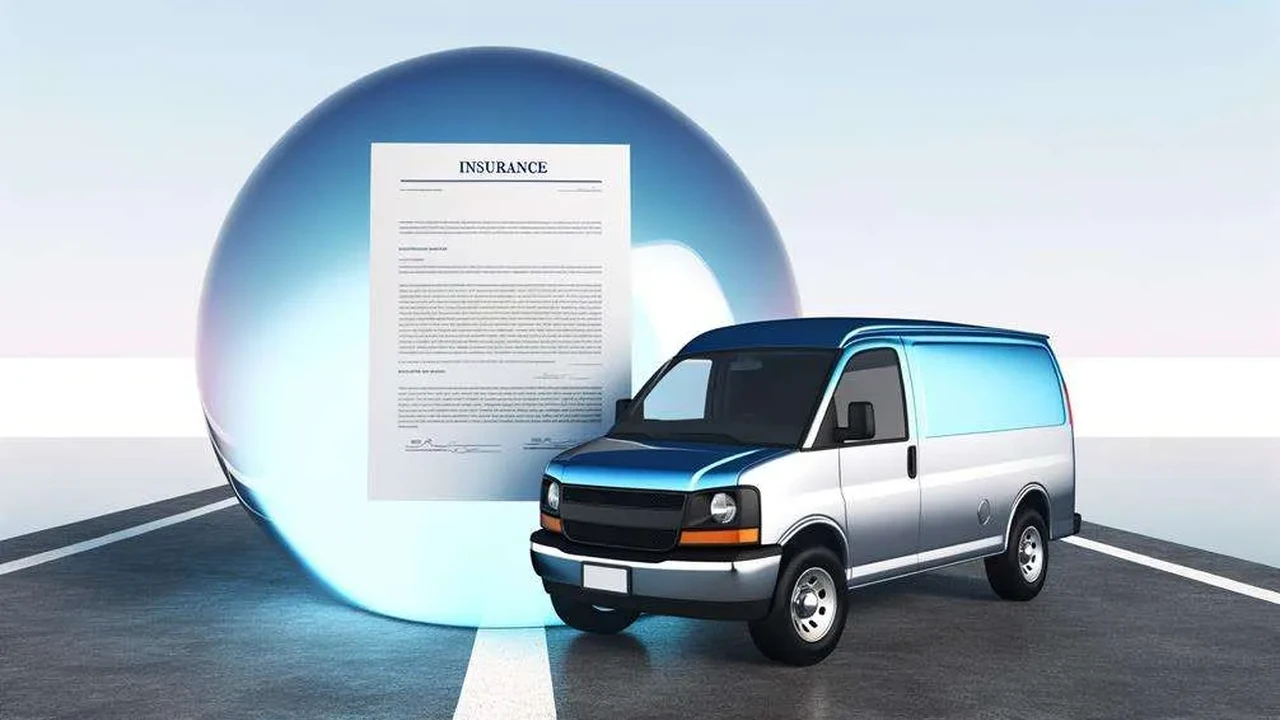Understanding the Role of State Insurance Departments

State Insurance Departments Overview Understanding Their Power and Reach
Alright, let's dive into the world of state insurance departments! These guys are like the referees of the car insurance game, making sure everyone plays fair and that you, the consumer, are protected. Think of them as the superheroes fighting against insurance villains (okay, maybe that's a bit dramatic, but you get the point!). They're not federal; each state has its own department, and they operate independently.
So, what exactly do they *do*? Well, a whole lot! They regulate insurance companies operating within their state, ensuring they're financially stable and can actually pay out claims when you need them. They also license insurance agents and brokers, meaning they make sure the people selling you insurance actually know what they're talking about. And, perhaps most importantly for you, they investigate consumer complaints. If you feel like your insurance company is giving you the runaround, the state insurance department is who you can turn to.
Licensing and Regulation Keeping Insurance Companies in Check
Licensing is a huge part of what state insurance departments do. They make sure that insurance companies meet certain financial requirements before they can start selling policies in the state. This protects you from buying a policy from a company that might go bankrupt and leave you high and dry when you need to file a claim.
Beyond initial licensing, they also conduct regular audits and reviews to ensure companies are continuing to meet these requirements. They look at things like the company's assets, liabilities, and claims-paying ability. They're basically making sure the insurance company isn't just promising to pay, but actually *can* pay.
And it's not just about the money! They also regulate the *way* insurance companies do business. They review policy forms to make sure they're clear and understandable (or at least, as clear as insurance policies can be!). They also make sure companies are handling claims fairly and promptly. This is all about protecting consumers from unfair or deceptive practices.
Consumer Protection Filing Complaints and Getting Help
This is where state insurance departments really shine in the eyes of consumers. If you have a problem with your insurance company – maybe they're denying your claim, or you think they're charging you too much – you can file a complaint with the state insurance department.
They'll investigate your complaint and try to mediate a resolution between you and the insurance company. They have the power to fine insurance companies for violations of state law, and in some cases, even revoke their license to do business in the state. That's a big stick they can wield!
But it's not just about complaints. Many state insurance departments also offer resources and information to help consumers understand their insurance options. They might have websites with FAQs, guides, and tools to help you compare policies and find the best coverage for your needs. They're trying to be a one-stop shop for all things insurance-related.
Rate Review and Approval Ensuring Fair Premiums
Ever wonder how insurance companies decide how much to charge you? State insurance departments play a role in that too! In many states, insurance companies have to submit their proposed rates to the department for review and approval.
The department will look at things like the company's claims experience, expenses, and investment income to determine whether the proposed rates are justified. They're trying to strike a balance between allowing insurance companies to make a reasonable profit and protecting consumers from excessive or unfairly discriminatory rates.
This process isn't always perfect, and it can be controversial. Insurance companies often argue that they need to charge higher rates to cover their costs, while consumer advocates argue that rates should be as low as possible. But the state insurance department is there to try to find a middle ground.
Specific Car Insurance Products and Recommendations
Okay, let's get down to brass tacks and talk about some actual car insurance products. It's not always straightforward, but understanding the different options can save you money and make sure you're properly covered.
Liability Insurance The Foundation of Your Protection
This is the basic coverage everyone needs. It protects you if you cause an accident and injure someone else or damage their property. Most states have minimum liability requirements, but you should consider buying more than the minimum. Why? Because if you cause a serious accident, the minimum coverage might not be enough to cover all the damages, and you could be personally liable for the rest.
Scenario: Imagine you rear-end someone at a stoplight and they suffer whiplash. Their medical bills and car repairs could easily exceed the state's minimum liability limits. With higher liability coverage, you're better protected from a lawsuit.
Collision Coverage Protecting Your Car No Matter Who's at Fault
Collision coverage pays to repair or replace your car if it's damaged in an accident, regardless of who caused the accident. This is especially important if you have a newer car or one that's worth a lot of money.
Product Recommendation: Consider collision coverage with a deductible you can comfortably afford. A higher deductible will lower your premium, but you'll have to pay more out of pocket if you have an accident. For example, a $500 deductible is a common choice.
Scenario: You're driving home from work and hit a deer. Even though it wasn't your fault, collision coverage will pay to repair the damage to your car.
Comprehensive Coverage Protecting Against the Unexpected
Comprehensive coverage protects your car from things other than collisions, like theft, vandalism, fire, hail, and falling objects. It's a good idea to have this coverage, especially if you live in an area with a high crime rate or severe weather.
Product Recommendation: Similar to collision, choose a deductible that you can afford. Comprehensive coverage is relatively inexpensive, so it's often worth having even with a low deductible.
Scenario: A tree falls on your car during a storm. Comprehensive coverage will pay to repair the damage.
Uninsured/Underinsured Motorist Coverage Protecting You From Irresponsible Drivers
This coverage protects you if you're hit by someone who doesn't have insurance or doesn't have enough insurance to cover your damages. Unfortunately, there are a lot of uninsured drivers out there, so this coverage is a must-have.
Product Recommendation: Get as much uninsured/underinsured motorist coverage as you can afford. It's often relatively inexpensive, and it can be a lifesaver if you're hit by an uninsured driver.
Scenario: You're seriously injured in an accident caused by an uninsured driver. Uninsured motorist coverage will pay for your medical bills and lost wages.
Comparing Car Insurance Products and Prices
Choosing the right car insurance can be overwhelming, but here's a quick comparison of some popular products:
Progressive Snapshot vs State Farm Drive Safe & Save
These are usage-based insurance programs that track your driving habits and offer discounts based on how safely you drive. Progressive Snapshot uses a device you plug into your car, while State Farm Drive Safe & Save uses a mobile app.
Pros: Potential for significant discounts, encourages safe driving habits.
Cons: Privacy concerns, potential for increased rates if you have risky driving habits.
Pricing: Discounts vary depending on your driving habits. Some users have reported savings of up to 30%, while others have seen their rates increase.
Geico vs Allstate
These are two of the largest car insurance companies in the US, offering a wide range of coverage options and competitive prices.
Geico: Known for its low rates and easy-to-use online tools.
Allstate: Known for its excellent customer service and a wide range of discounts.
Pricing: Geico is generally cheaper for drivers with good driving records, while Allstate may be a better option for drivers with a history of accidents or tickets.
The Hartford (AARP)
This company specializes in car insurance for seniors, offering discounts and benefits tailored to their needs.
Pros: Discounts for AARP members, specialized coverage options for seniors.
Cons: May not be the best option for younger drivers.
Pricing: Competitive rates for seniors, especially AARP members.
Where to Buy Car Insurance and How to Save Money
You can buy car insurance from a variety of sources, including:
- Directly from insurance companies: Like Geico, Progressive, and State Farm.
- Independent insurance agents: Who can shop around for the best rates from multiple companies.
- Online insurance marketplaces: Like The Zebra and Gabi, which allow you to compare quotes from multiple companies at once.
Here are a few tips for saving money on car insurance:
- Shop around and compare quotes from multiple companies.
- Increase your deductible.
- Take advantage of discounts, such as safe driver discounts, good student discounts, and multi-policy discounts.
- Maintain a good credit score.
- Review your coverage annually and make sure you're not paying for coverage you don't need.
:max_bytes(150000):strip_icc()/277019-baked-pork-chops-with-cream-of-mushroom-soup-DDMFS-beauty-4x3-BG-7505-5762b731cf30447d9cbbbbbf387beafa.jpg)






